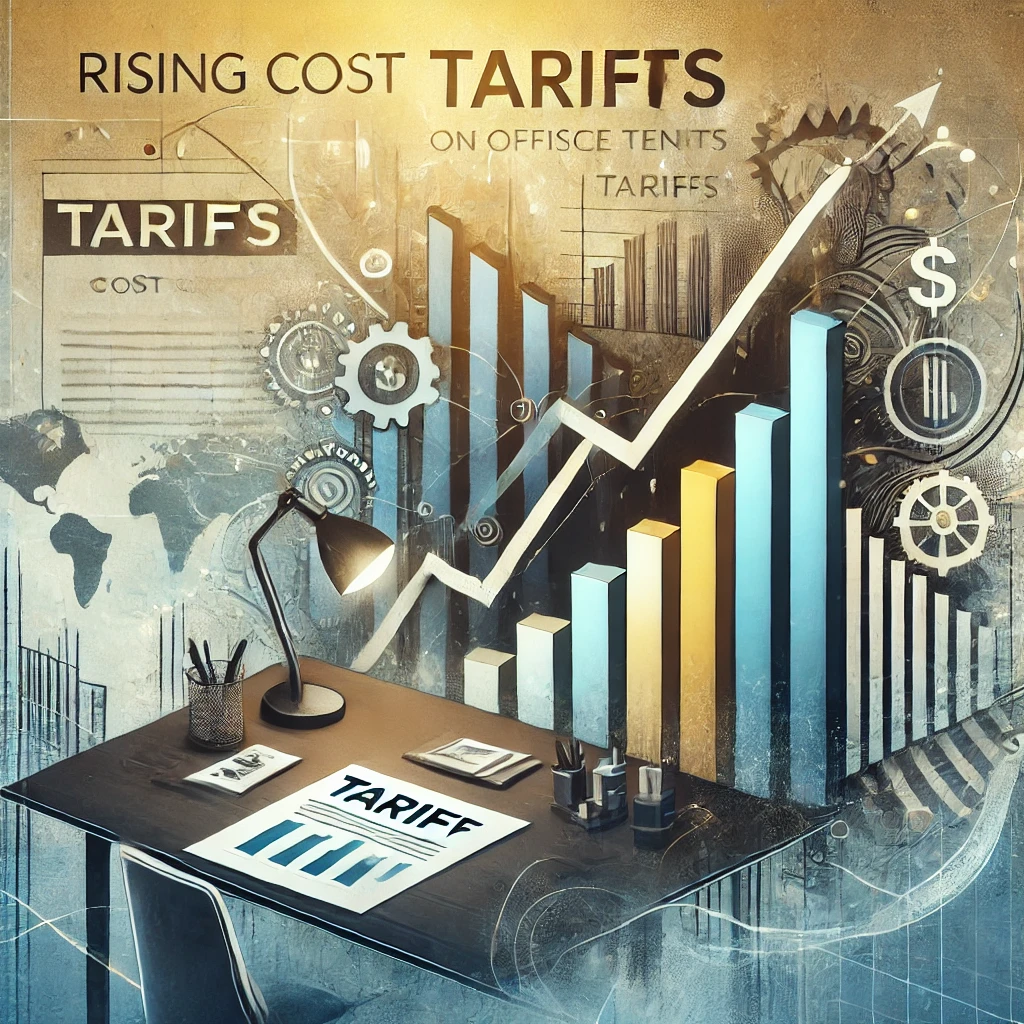How New Tariffs Could Impact Office Tenants

As new tariff policies reshape the economic landscape, many business owners are wondering: How will this impact my office space lease and overall business operations? While tariffs primarily affect global trade and manufacturing, they also have significant ripple effects on real estate, particularly for office tenants navigating lease renewals, expansions, and cost-saving strategies.
Tariffs and Rising Costs: A Business Challenge
Today’s tariffs impact on office tenants
The latest round of tariffs places additional costs on imported goods from key trading partners like China, Mexico, and Canada. While much of the focus has been on consumer goods and industrial materials, these tariffs will indirectly influence businesses that lease office space in several ways:
- Increased Operating Costs: Many office-based businesses rely on imported technology, office furniture, and supplies. With tariffs increasing costs, companies may need to reassess budgets, which could influence their real estate decisions.
- Supply Chain Disruptions: Delays in acquiring essential office equipment or materials due to price increases could slow down expansions or renovations.
- Inflation and Interest Rate Implications: Historically, tariffs contribute to inflation. As costs rise, so do interest rates, potentially making financing more expensive for businesses looking to purchase office properties.
Potential Benefits for Office Tenants
While increased costs pose challenges, office tenants may also find opportunities amidst tariff-driven market shifts:
- Leverage in Lease Negotiations: If tariffs slow down new commercial developments due to rising construction costs, landlords may be more inclined to offer competitive lease terms to fill vacancies in existing office spaces.
- More Flexible Terms: With some businesses delaying expansion plans, landlords may be more open to short-term leases or customized agreements that favor tenants.
- Opportunities in Secondary Markets: If Manhattan’s prime office spaces become too costly due to inflationary pressures, businesses may find attractive deals in emerging neighborhoods or outer boroughs.
Office Space Strategies for Navigating Tariff Uncertainty
Tomorrow’s tariffs impact on office tenants
As tariffs introduce uncertainty into the economy, office tenants should consider the following strategies:
- Assess Lease Commitments: If your lease is up for renewal, negotiate for better terms, considering the shifting economic conditions.
- Explore Cost-Saving Options: Evaluate alternative office layouts, such as flexible workspaces, co-working arrangements, or subleases, to offset rising operational expenses.
- Monitor Market Trends: Keep an eye on vacancy rates, landlord incentives, and potential rent adjustments as the market reacts to broader economic changes.
- Consider Future-Proofing: With economic shifts affecting business stability, consider lease agreements that provide exit flexibility or expansion options as needed.
Final Thoughts: Turning Tariff Challenges Into Opportunity
While tariffs bring economic uncertainty, they also create opportunities for savvy office tenants to secure advantageous lease terms and optimize operational costs. If you’re navigating a lease renewal, expansion, or considering relocating, now may be the time to strategize.
Need expert advice on securing the best office space for your business? Contact us today to explore your options and make informed real estate decisions.


